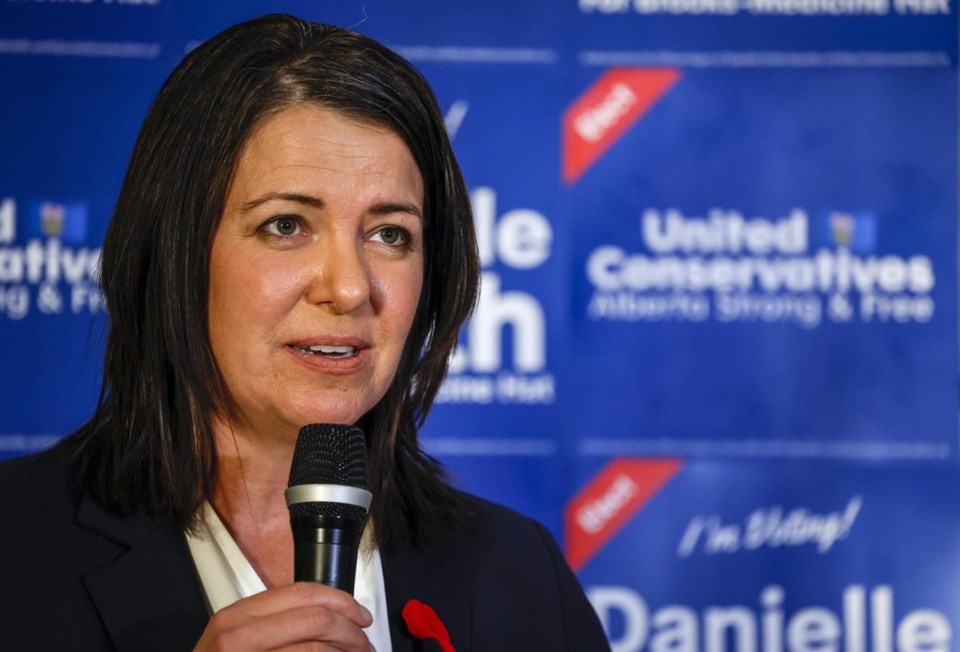CALGARY — An Alberta cabinet minister says it makes more sense now to help people in the province suffering from an "inflation crisis" and skyrocketing utility bills than waiting for another seven months.
Matt Jones, minister of affordability and utilities, said he's not about to apologize for providing help at this point, even though there's a provincial election expected in the province in May.
"I would say there either is a cost of living and inflation crisis or there isn't. Albertans are certainly feeling it and the next question becomes, should the government respond to address the real needs of Albertans now or wait for seven months?" Jones said Wednesday in Calgary during an announcement that the province is to provide $20 million over the next two years to help food banks.
"I'm not prepared to tell families to wait to feed their families or to get to work. We've been financially disciplined for three years, so we are in a position to do so and I think it's important that we support Albertans in their time of greatest need."
Alberta is on track for a $13-billion surplus this year due to rebounding oil and gas prices, with an update on the budget coming Thursday.
The money is to include $10 million in direct funds and an additional $10 million in matching funds toward food banks, charities, non-profits and civil society organizations.
Jeremy Nixon, minister of seniors, community and social services, said there is an "immediate crisis, so I think that adds to the answer why now."
“Many Albertans rely on food banks, which is why I am so grateful for the work they do in their local communities. It is my goal to ensure that no Albertan ever needs to wonder where their next meal will come from," Nixon said.
"During the pandemic there was also a crisis, so this isn't new. We recently put $6 million into food banks then and we're building on that."
Food Banks Alberta CEO Arianna Scott said the money is critical to meet rising needs from the public.
"When (the) Hunger Count (report) came out nationally in October, Alberta experienced a 73 per cent increase since 2019. So it is the largest increase across the country. It is also the largest increase that Alberta has ever experienced," Scott said.
"We hear from our members every day that the number of new clients coming through the door is increasing exponentially. The majority of our members continue to experience an increase month over month throughout this year."
Premier Danielle Smith announced Tuesday payouts of $600 for middle- to lower-income families in a provincewide TV address. Those with a household income of less than $180,000 a year are to get $600 for each child under 18 over a period of six months. The same income threshold and benefit applies to seniors.
The government is also promising to remove its provincial gasoline tax and to continue providing electricity rebates.
Jones said Wednesday that those not eligible for the $600 payouts aren't being left out.
"The vast majority of Albertans will be eligible for up to $500 in electricity rebates and even more when you combine the fuel tax relief," he said.
"I think we would all agree as the cost of living and inflation crises persist, we must target additional supports to where it is needed most."
In Calgary, Opposition NDP Leader Rachel Notley said she welcomes more money for food banks but hopes it doesn't come at the expense of help for other aid agencies.
Notley said food banks must remain a last resort and the United Conservative government has accelerated the need for them by cutting supports like rent subsidies. The government also de-indexed benefits for seniors and the vulnerable in 2019 and recently committed to re-indexing them.
"In the long-term, we still need to design our programs to eliminate the need for food banks," said Notley. "That must be a priority for the provincial government."
This report by The Canadian Press was first published Nov. 23, 2022.
Bill Graveland, The Canadian Press




